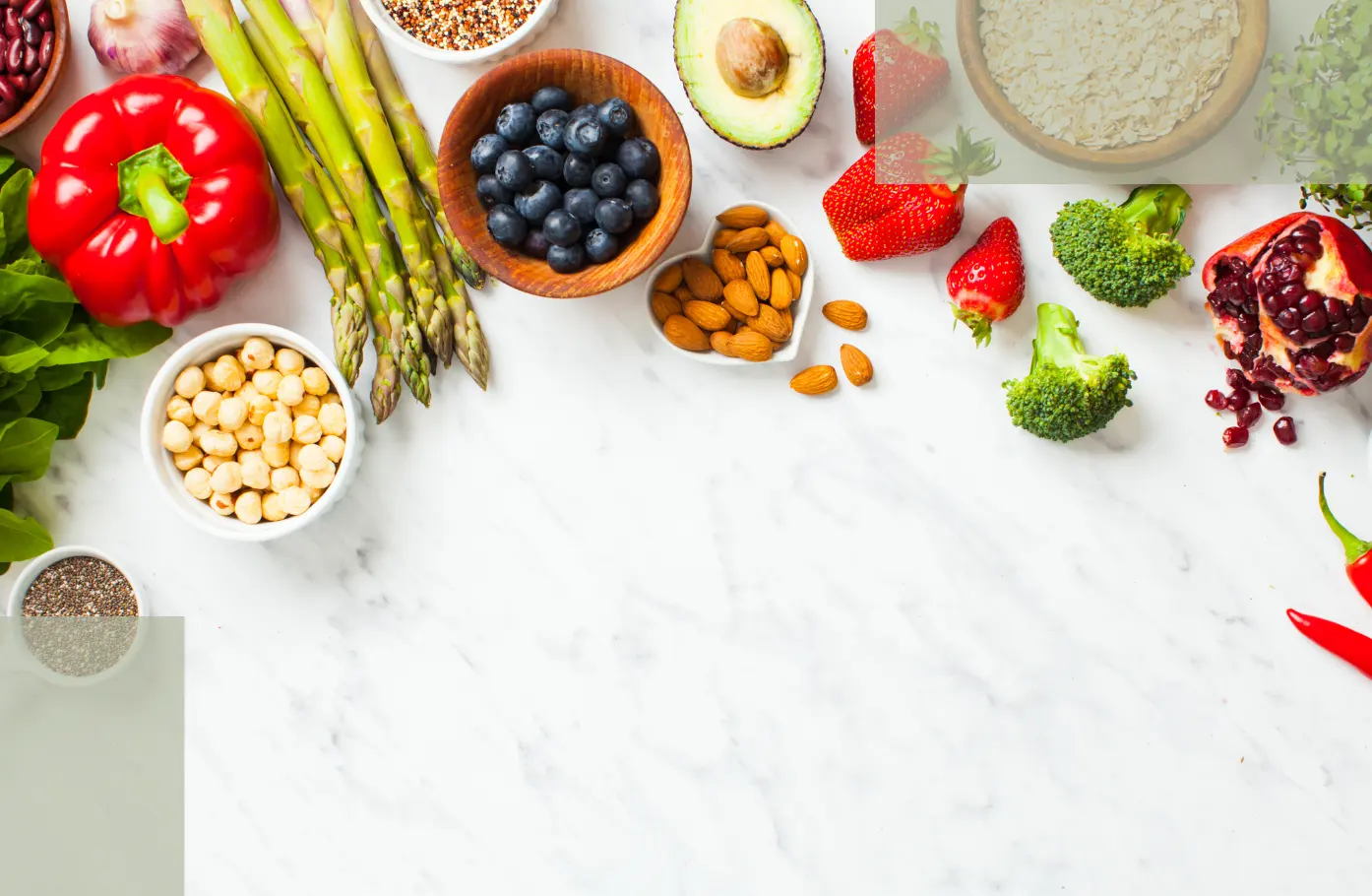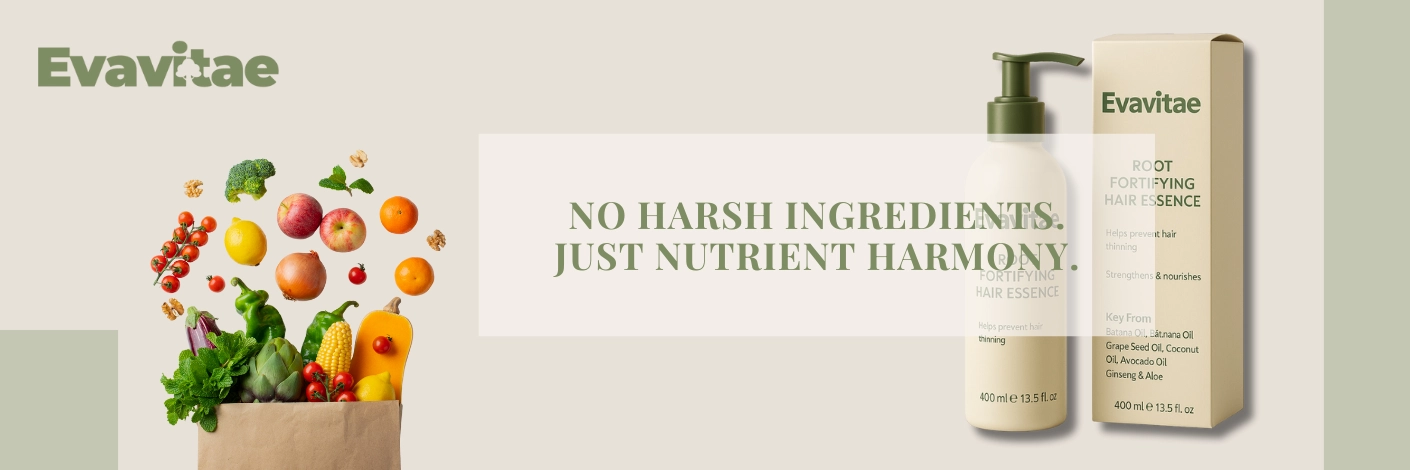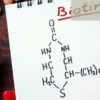
Hair growth is more than just a matter of shampoo or serums—it’s deeply connected to your internal health, especially your nutrition. While topical products can support a healthy scalp environment, what you eat daily plays a critical role in strengthening hair follicles, reducing shedding, and supporting growth over the long term.
In this article, we’ll explore the best foods for hair growth, why they work, and how to combine nutrition with gentle external care to create a holistic routine.
🧬 Why Nutrition Matters for Hair Growth
Hair is made primarily of keratin, a structural protein built from amino acids and supported by a variety of vitamins and minerals. If your body lacks key nutrients, hair is one of the first areas to show signs—because it’s non-essential to survival.
Nutritional deficiencies are among the most common contributors to hair thinning and poor growth, particularly in women. According to research published in Dermatology Practical & Conceptual, low levels of iron, zinc, biotin, vitamin D, and protein have been directly associated with telogen effluvium (a form of diffuse hair shedding) and reduced hair quality (Almohanna et al., 2019).
🥦 Top Foods That Support Healthy Hair Growth
1. Eggs
Eggs are rich in biotin and protein, two vital nutrients for hair health. Biotin supports keratin production, while protein provides the structural building blocks.
Pro tip: Always cook your eggs—raw egg whites contain avidin, which can bind to biotin and reduce absorption.
2. Fatty Fish (Salmon, Mackerel, Sardines)
Packed with omega-3 fatty acids, vitamin D, and protein, fatty fish can help reduce scalp inflammation, improve circulation, and support hair follicle health.
A 2021 review in Nutrients highlighted that omega-3s also play a role in reducing hair follicle miniaturization linked to aging and hormonal imbalance (Blume-Peytavi et al., 2021).
3. Spinach and Leafy Greens
Loaded with iron, folate, vitamin A, and vitamin C, these greens are crucial for oxygenating hair follicles and producing sebum, the scalp’s natural conditioner.
Low iron is one of the leading causes of hair shedding, especially in menstruating women (Trost et al., 2006).
4. Nuts and Seeds
5. Berries
6. Avocados
7. Sweet Potatoes
8. Greek Yogurt and Other Fermented Foods
💡 Signs You Might Be Missing Nutrients
If you’re experiencing:
- Sudden or excessive shedding
- Brittle, dry hair
- Slower-than-usual growth
- Scalp dryness or irritation
…it may be worth discussing your iron, vitamin D, zinc, or protein levels with a healthcare provider.
📌 Related resource:Cleveland Clinic: Hair Loss and Nutrition
🧴 Pairing Nutrition with Gentle Hair Care
Even with a perfect diet, harsh shampoos or irritating products can undermine your hair care progress. That’s why pairing nutrient-rich meals with topical products designed for sensitive scalps is key.
Here’s what I recommend to clients dealing with shedding or slow growth:
1. Use a sulfate-free, fragrance-free shampoo
2. Hydrate your scalp with a light serum
3. Detangle with care
If you want to dive deeper into how your diet and scalp care habits can complement each other, check out our in-depth guide on how diet and scalp care work together to stimulate hair growth. It provides a holistic look at combining nutrition with topical care for stronger, healthier hair.
🍽️ A Sample “Hair Growth Meal Plan” Day
Meal | Foods |
Breakfast | Scrambled eggs with spinach, whole grain toast, and a handful of berries |
Lunch | Salmon salad with avocado, olive oil, and mixed greens |
Snack | Greek yogurt with chia seeds and honey |
Dinner | Grilled sweet potato, quinoa, steamed broccoli, and lentils |
Hydration matters too—drink at least 6–8 cups of water per day, and consider limiting sugar and processed foods, which can contribute to hormonal imbalances.
❓ FAQ: Nutrition and Hair Growth
Q: Can food alone reverse hair thinning?
A: If your hair loss is caused by nutrient deficiencies, diet can make a big difference. But for hormonal or genetic causes, food supports—not cures—the problem.
Q: How long before I see results from diet changes?
A: Hair grows slowly. You may notice reduced shedding and improved texture within 8–12 weeks, but full changes can take 3–6 months or longer.
Q: Do I need supplements?
A: Not unless you have a confirmed deficiency. Too much of certain nutrients (like iron or vitamin A) can cause hair loss. Always test before you treat.
📋 Quick Takeaways
Concern | Nutrition Support | Topical Care |
Shedding | Iron, protein, vitamin D | |
Fragile hair | Omega-3s, vitamin E | |
Slow growth | Zinc, biotin | Avoid heat styling |
Scalp irritation | Anti-inflammatory foods | Aloe, panthenol, amino acids |
🧡 Final Thoughts
Hair growth starts from within—but is supported by what you put on your scalp too. Eating the right foods can fuel healthy follicles, support new strand production, and reduce shedding caused by deficiencies. At the same time, gentle, non-irritating hair care helps protect what’s already growing.
By focusing on whole foods, getting regular bloodwork, and avoiding harsh hair products, you can create a supportive environment for stronger, more resilient hair—no crash diets or miracle pills required.
✨ Want to nurture thicker, healthier strands? Explore our guides in the Hair Growth Hub.
🌱 Begin your stronger, healthier hair journey with the Evavitae Root Fortifying Hair Essence.
For gentle scalp care and nourishing formulas, see our Best Shampoo for Postpartum Hair Loss Overview.
📚 References (APA Style)
Almohanna, H. M., Ahmed, A. A., Tsatalis, J. P., & Tosti, A. (2019). The Role of Vitamins and Minerals in Hair Loss: A Review. Dermatology Practical & Conceptual, 9(3), 235–243. https://doi.org/10.5826/dpc.0903a08
Blume-Peytavi, U., Hillmann, K., Dietz, E., Canfield, D., & Garcia Bartels, N. (2021). Hair Loss in Nutritional Deficiencies. Nutrients, 13(12), 4208. https://doi.org/10.3390/nu13124208
Trost, L. B., Bergfeld, W. F., & Calogeras, E. (2006). The diagnosis and treatment of iron deficiency and its potential relationship to hair loss. Journal of the American Academy of Dermatology, 54(5), 824–844. https://doi.org/10.1016/j.jaad.2005.11.1104
Evavitae products are now available exclusively at www.evavitae.com.




Add comment
You must be logged in to post a comment.